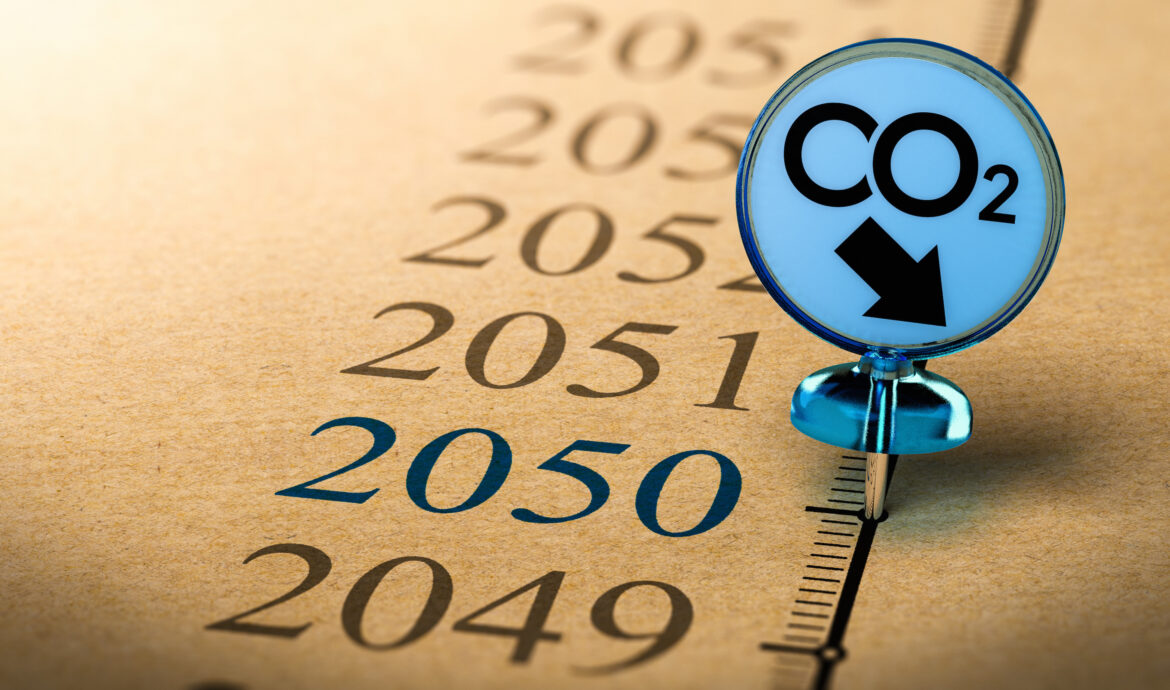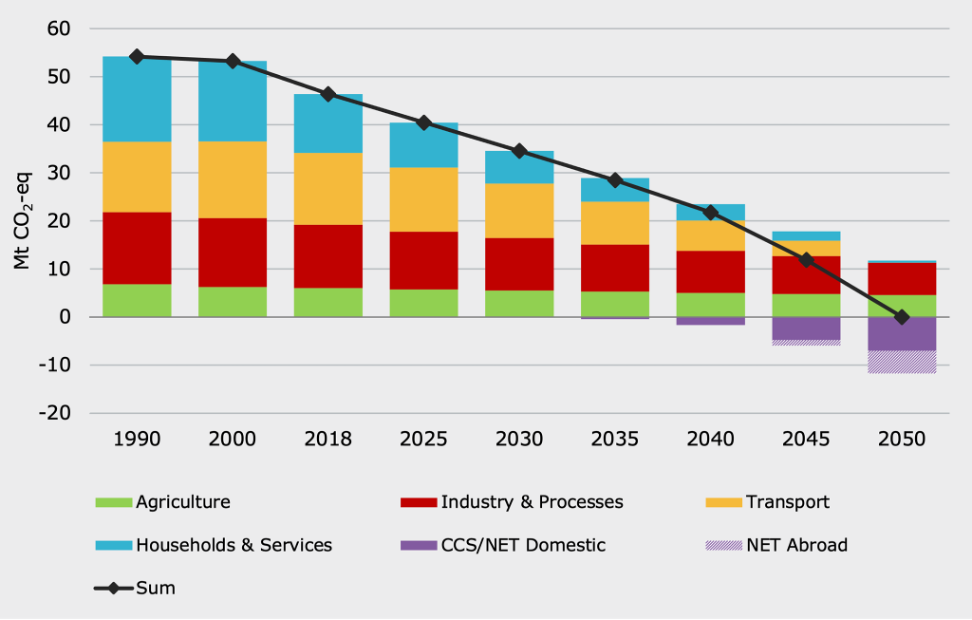
Our contribution to climate mitigation – What can we do personally and what can Switzerland do?
On 27.05.2021 by Christian Schaffner, Anthony Patt, Marco MazzottiToday is National Climate Day in Switzerland. We don’t have much time left to reach our climate goals and to implement our promised share in the fight against global warming – but we already have concrete ways to contribute today! Be it in the choice of our next car, the refurbishment of our own home, or the choice of our vacation destination. Switzerland could become a showcase country for technically, economically and socially feasible solutions for a sustainable energy supply. Let’s do it!
We have a long way to go: If we want to reach our goal to stop emitting climate-damaging gases into the atmosphere by 2050, we have to transform our energy system. In particular, we must abandon fossil energy sources such as oil and natural gas. The year 2050 seems a long way off, but it’s less than 30 years, which is unfortunately very short in the energy sector if we think, for example, of the lifespan of heating systems in buildings (typically 20 to 25 years). Therefore, we need to act now!
To better understand the current situation, it is worth taking a look at the climate-relevant emissions in Switzerland and the potential reduction path until 2050:

Legend: Climate-relevant Greenhouse Gas Emissions in Switzerland (in Mega-Tons CO2 equivalents): net-zero scenario until 2050 [Source: Energy Perspectives 2050+ (SFOE), Prognos AG / TEP Energy GmbH / INFRAS AG 2020].
The graph shows clearly that we have already achieved a lot since 1990, especially in the household sector. Nevertheless, it shows that climate-relevant emissions must be reduced even more. The high CO2 emissions from the “Transport” and “Households & Services” sectors are almost exclusively the result of the use of fossil fuels: gasoline for private cars, diesel for trucks, crude oil and natural gas for heating. These areas should therefore become the main focus of our effort, since emissions in these areas must be reduced to almost zero by 2050. Most of the remaining emissions will still come from agriculture and industry, which are difficult sectors to decarbonize at the source. In order to achieve the net-zero 2050 emissions target, this part will have to be compensated with negative emission technologies, or NET, that are responsible for capturing more CO2 than they emit, leading to so-called negative emissions. Examples include technologies to capture CO2 from the air, as demonstrated by the ETH spin-off Climeworks, or through innovative processes in cement production, which another ETH spin-off, Neustark, is developing. The process to store captured CO2 underground is termed “Carbon Capture and Storage” (CCS).
But what can we do by ourselves?
Let’s focus on the energy part for now: what can each of us actually do to make a difference? Some examples of what we can do:
- decide to buy an electric car instead of a gasoline-powered one (or forgo buying one altogether and use car sharing, public transport, or a bike).
- invest in a heat pump for the next building refurbishment instead of replacing oil heating with a fossil fuel solution again.
- commit to flying less at the workplace (since Covid19 we know that video conferencing works quite well, see also the interview with the ETH President, Joël Mesot).
- choose vacation destinations that can be reached by train or other sustainable means of transport.
- ensure that our money is invested in renewable energy sources.
This list is of course not exhaustive and should be seen as an inspiration. But these are certainly measures that have a major impact on the evolution of climate-relevant emissions.
You may think that all these decisions require a large personal investment. But the opposite is often the case, because the perceived comfort is often actually higher: anyone who has ever driven a state-of-the-art electric car, or who uses a car-share scheme and need not be concerned about repairs, or who has recently refurbished their house, can confirm this. And it also reduces noise and improves the quality of the air in our cities and neighbourhoods, with important benefits for our health. In terms of cost, too, these new technologies are now no longer more expensive – or only slightly more – over their lifetime, whilst some savings are to be had, for instance, train tickets are often cheaper than long-haul flights. This is without taking into account external costs such as the environmental impacts.
What can Switzerland do?
Of course, the strong electrification of the transport and building sector also leads to an increasing demand for electricity. In addition, global warming leads to an additional electricity demand for the active cooling of buildings. Therefore, we will most certainly have to strongly expand photovoltaics in particular. We have enough space for this, almost exclusively on existing roof surfaces. The costs for photovoltaics have fallen so much in recent years that this expansion is also economically viable or even financially rewarding over a longer period of time, even for tenants or communities. In addition, the power supply must be made more intelligent, data must be used effectively, and storage facilities must be expanded. And finally, smart regulations need to be put in place to enable the significant investments required.
The massive expansion of renewable energy sources and the electrification of the transport and building sectors will also increase the demand for materials, especially metals (including copper, lithium, cobalt). This can only be implemented sustainably if these metals are consistently recycled. Thus, it is also important to optimize the corresponding processes and to build up the necessary recycling industry.
In Switzerland, we have all the prerequisites to be able to implement such a transformation and demonstrate to our neighbours and the world how this is feasible technically, economically and socially: we have the financial means, we have the infrastructure, we have the necessary manual skills, and last but not least, we have world-class universities that can accompany and drive the process scientifically. Let’s join forces to make Switzerland a showcase country in the transformation of the energy system toward a sustainable supply!
Keep up with the Energy Blog @ ETH Zurich on Twitter @eth_energy_blog.
Suggested citation: Schaffner, Christian, Patt, Anthony, Mazzotti, Marco “Our contribution to climate mitigation – What can we do personally and what can Switzerland do?”, Energy Blog @ ETH Zurich, ETH Zurich, May 27, 2021, https://blogs.ethz.ch/energy/climate-day/
If you are part of ETH Zurich, we invite you to contribute with your findings and your opinions to make this space a dynamic and relevant outlet for energy insights and debates. Find out how you can contribute and contact the editorial team here to pitch an article idea!
Christian Schaffner is the Executive Director of the Energy Science Center (ESC) of ETH Zurich in Switzerland, a post he’s held since September 2013. The ESC is an inter-disciplinary competence centre that promotes energy research and teaching at ETH. It aims to facilitate the deployment of an environmentally friendly, reliable, low risk, economically viable and socially compatible sustainable energy system.
Anthony Patt has been Full Professor of Climate Policy at the Institute for Environmental Decisions at ETH Zurich since 2013. After studying and researching at internationally renowned universities and practicing for several years as a lawyer and environmental planning consultant, Anthony’s current research is in identifying successful governmental approaches for eliminating greenhouse gas emissions within a short timeframe.
Marco Mazzotti has been Professor at ETH Zurich since 1997, after studying and researching as chemical engineer at the Politecnico di Milano and working in industry. Marco’s research in the Institute of Energy and Process Engineering at ETH Zurich deals with separation processes for a range of applications, from pharma to energy. A key focus in his current work is on the systemic aspects of carbon dioxide management to enable climate positive solutions and a carbon-neutral society.




Thanks for the nice comment! Two key factors are missing in my opinion:
1 engage politically (from voting for the respective parties, referenda, initiatives, through demonstrating to actively engaging in politics)
2 decide who you want to work for – this is probably the biggest lever that the highly sought after ETH talents have.
Thanks, Tobi, for your comments! I fully agree that there are many more things we can do. And your point 2 is very important and not so obvious.
Thanks for putting together article. In the list of personal actions that one could take to reduce climate impact, I was expecting (hoping) to see reduction (let alone giving up) of consumption of meat and dairy. Most energy/climate researchers know how big of an impact this sector has. This is something one can do now (today!) in our day-to-day life and start a cascade effect if enough of us do it. Yes, food is a personal choice, but if our choices are literally burning the planet, we ought to face them and talk about them.
Thanks for this comments, Vikas. As you see in the graph, there is quite a significant contribution from agriculture to the GHG emissions in Switzerland (not taking account “imported” emissions). We didn’t add this here, since we wanted to focus on energy related topics. But this doesn’t mean food related issues are less important. There was, by the way, an article on the ETH news talking about these issues.